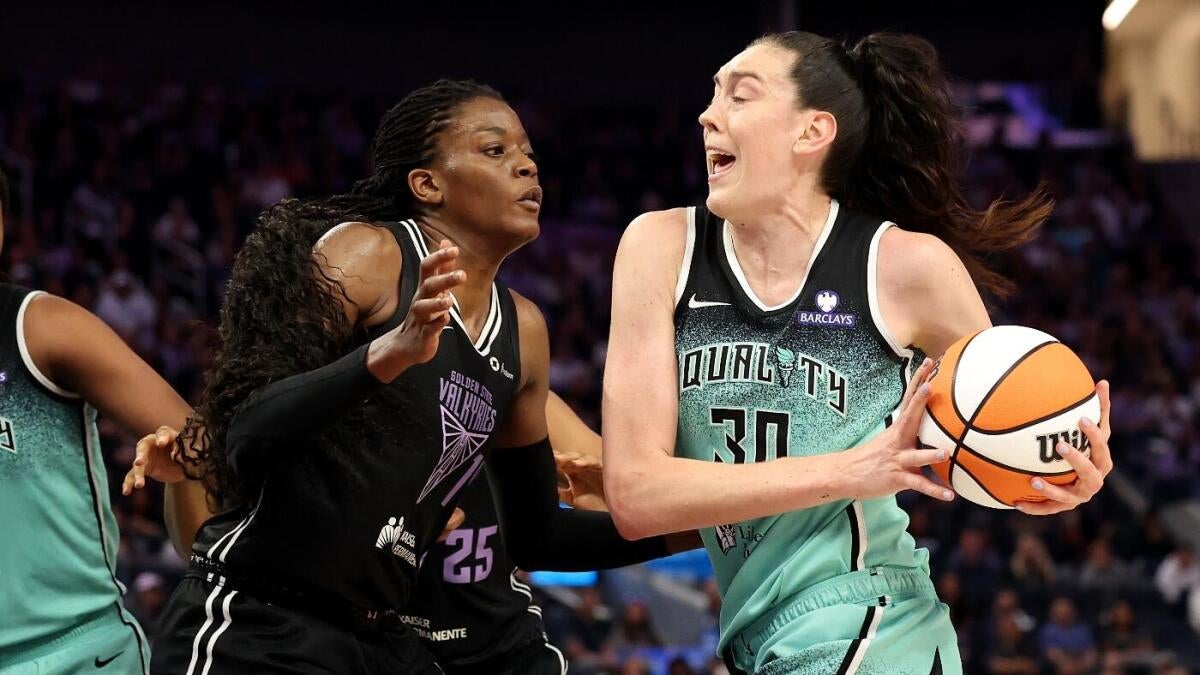The Golden State Valkyries, the WNBA’s newest expansion team, are making waves as they head to the playoffs in their very first season. However, a scheduling conflict might move their first home playoff game away from their beloved Chase Center. A tennis tournament, the Laver Cup, is booked at the arena, causing potential relocation challenges. This situation has sparked frustration, particularly from WNBA star Breanna Stewart, highlighting ongoing issues of scheduling priorities between men’s and women’s sports.
This article explores the details surrounding the scheduling conflict, the Valkyries’ response, and the broader implications for the WNBA. We will delve into why this happened, potential alternative locations, and the reactions from key figures like Breanna Stewart. Understanding this situation provides insight into the challenges and triumphs of women’s sports in gaining equal footing.
Laver Cup vs. Valkyries: A Scheduling Showdown
The heart of the issue lies in the Chase Center’s prior commitment to hosting the Laver Cup, an international tennis tournament. Scheduled for September 19-21, the event requires significant preparation, including transforming the basketball arena into a tennis court. This booking predates the Valkyries’ existence, creating an unavoidable conflict with the WNBA playoffs, which commence in mid-September. The Valkyries, currently holding the No. 6 seed with a 22-18 record, are poised to make their historic playoff debut, but the venue snag threatens their home-court advantage.
According to a statement from the Valkyries, this situation was unforeseen due to the early planning of the Laver Cup. “Due to Chase Center hosting Laver Cup, a global tennis tournament, which was booked prior to Golden State’s acquisition of the Golden State Valkyries, we are navigating potential venue impacts.” The team acknowledges the challenge and aims to provide the best possible experience for fans and athletes despite the uncertainty.
Breanna Stewart’s Disappointment: A Familiar Story
Breanna Stewart, a prominent figure in the WNBA, voiced her frustration over the scheduling conflict. Having witnessed similar issues throughout her career, Stewart emphasized the disparity between how men’s and women’s sports are treated regarding venue priorities. “You want to think that you’re past it,” Stewart said. “We want to think that we’re better than this. Listen, sometimes it’s out of the control of everyone involved. But it’s just … you don’t see it happening with the NBA.”
Stewart’s sentiment reflects a broader concern that women’s sports often take a backseat to men’s events when it comes to scheduling and resource allocation. Despite the WNBA’s growing popularity and success, these logistical hurdles continue to surface, hindering the league’s progress and the overall experience for players and fans.
Where Else Could the Valkyries Play? Exploring Options
With the Chase Center unavailable, the Valkyries are exploring alternative venues for their first home playoff game. According to SFGate, potential locations include Oakland, Sacramento, or San Jose. Each option presents its own set of advantages and challenges, including seating capacity, fan accessibility, and logistical considerations.
Moving the game to a different venue could impact the team’s home-court advantage, as the Chase Center, affectionately known as “Ballhalla,” has been a significant factor in their success this season. The team is committed to finding a solution that minimizes disruption and provides a positive experience for their loyal fanbase.
Broader Implications for the WNBA
The Valkyries’ venue predicament underscores the ongoing challenges faced by the WNBA in securing optimal facilities and scheduling. While the league has experienced substantial growth in recent years, these types of conflicts highlight the need for greater recognition and prioritization of women’s sports.
This situation also serves as a reminder of the importance of long-term planning and collaboration between sports organizations and venue management. By addressing potential conflicts proactively, the WNBA can ensure that its teams have the resources and support they need to succeed.
The Valkyries’ Stance: Navigating Uncertainty
The Valkyries have acknowledged the potential impact of the scheduling conflict and are actively working to find a resolution. Their primary focus is on delivering the best possible experience for fans and athletes, despite the uncertainty surrounding the playoff schedule and venue availability.
As the team navigates this challenge, they remain committed to their goal of making a historic playoff run in their inaugural season. With the support of their fans and the determination of their players, the Valkyries are poised to overcome this obstacle and continue their remarkable journey.
Final Thoughts: A Test of Resilience
The Golden State Valkyries’ potential venue displacement for their first home playoff game highlights the ongoing challenges and resilience within women’s sports. As Breanna Stewart’s frustration underscores, logistical hurdles and scheduling conflicts can overshadow the remarkable achievements of WNBA teams. Despite these challenges, the Valkyries’ determination to provide a top-tier experience for fans and athletes alike showcases their commitment to success.
The situation calls for improved foresight and collaboration between sporting organizations and venue management to avoid similar issues in the future. As the WNBA continues to grow and gain popularity, ensuring that its teams have the necessary resources and support will be crucial. Ultimately, the Valkyries’ ability to navigate this hurdle will serve as a testament to their strength and the unwavering spirit of women’s basketball.

Leave a Reply